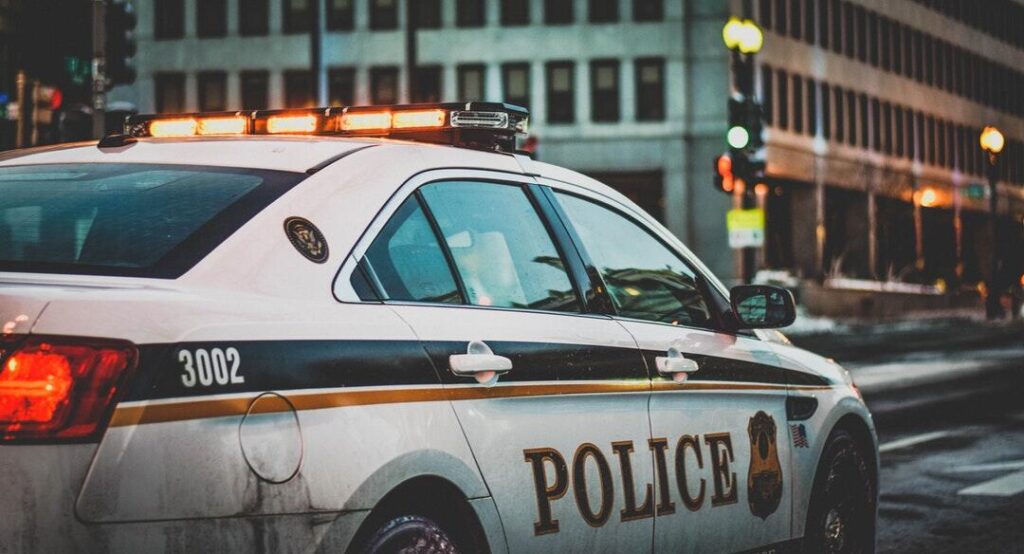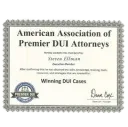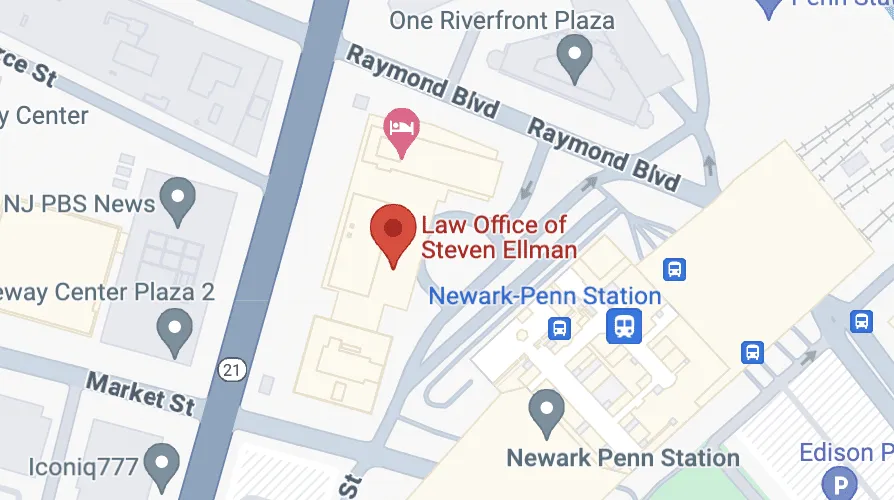How Long Does a DUI Stay on Your Record in New Jersey?
How long does a DUI stay on your record? Discover the duration in New Jersey and its impact on your future. Explore your options to mitigate its effects today.
According to NHTSA, traffic deaths in the U.S. dropped by 4.4% in early 2024. While this is good news, DUI charges are still a big problem. If you were arrested for driving under the influence (DUI) in New Jersey, one question you may have in mind is: How long does a DUI stay on your record?
A DUI can affect your driving, insurance, and job opportunities for years. In this article, we’ll explain the timeframe a DUI stays on your record in the state of New Jersey, what it means for your future, and how you can reduce its impact. Keep reading for more details.
How Long Does a DUI Stay on Your Record in the State of New Jersey?
A DUI stays on a driving record forever in New Jersey because it is a traffic violation, not a criminal offense. Unlike some states, you cannot remove a DUI from your record, and it can be used against you if you get another one. However, if ten years pass without another DUI, the penalties for a new one may be lower.
A DUI does not show up on most criminal background checks unless other criminal charges are involved. Police and courts can still see your DUI history, which may affect future cases. In other words, it might not impact job searches unless the employer checks driving records.
A DUI can affect different areas of life, including insurance and legal matters. Insurance companies, employers, and law enforcement can see past violations. Since New Jersey does not allow DUI expungement, the best option is to drive safely and avoid more violations.
Even though a DUI stays on your record, its effects may lessen over time. Insurance rates may go down, and penalties for a new offense might be lower after ten years. Safe driving is the best way to prevent further issues.
Difference Between Driving Record and Criminal Record
A driving record keeps track of traffic offenses like DUIs, speeding tickets, and license suspensions. On the other hand, though a criminal record includes crimes like theft or assault, a DUI in New Jersey is usually not considered a crime under New Jersey DUI laws. A DUI, therefore, does not always appear in standard background checks.
Since a DUI is a traffic offense, it cannot be erased from your driving record. However, if you were charged with a crime related to the DUI, you might be able to expunge that under certain conditions. Understanding the difference helps when dealing with job applications and legal issues.
Some jobs may not check driving records, but those involving driving will see a DUI. Employers who review driving history will find it even years later. A driving record can affect jobs that require safe driving.
Impact on Insurance Rates
A DUI can significantly raise car insurance rates, sometimes doubling or tripling the cost. Insurance companies consider DUI offenders high-risk drivers and raise prices for at least three to five years. Some companies may even cancel policies, forcing drivers to seek expensive, high-risk insurance.
New Jersey requires DUI offenders to get an SR-22 certificate, which proves they have insurance. A DUI conviction can add extra costs and limit choices for insurance providers. To reduce costs, compare insurance companies, keep a clean driving record, and take a defensive driving course.
Some companies offer discounts for safe driving over time. Paying on time and maintaining good credit may help lower premiums. After about five years, insurance rates may return to normal if there are no new violations.
Consequences for Employment and Background Checks
Jobs that require driving are most affected, while others may not check driving records. Employers who do background checks may or may not see a DUI, depending on how they search. Here are the specifics of how a DUI can affect employment:
- Driving jobs, like trucking, may not hire someone with a DUI.
- Government or security jobs may do deeper checks and see the DUI.
- Some employers have strict rules and may reject applicants with a DUI.
- Jobs in healthcare or finance may consider a DUI when hiring.
If a DUI appears on your background check, being honest about it is usually the best choice. Some employers appreciate responsibility and efforts to improve after a mistake. You must complete the required programs and show good behavior to help your case.
Expungement and Record Clearing in New Jersey
New Jersey does not allow DUI expungement because it is a traffic offense. This means it stays on your driving record forever and cannot be removed. However, other related offenses might be eligible for record expungement in N.J.
According to the New Jersey Judiciary, you must wait five years after finishing your sentence to apply for the expungement of certain offenses. All fines and fees must be paid, but in some cases, you can apply after four years. Expungement is limited to one indictable crime and up to three disorderly or petty offenses.
Even though a DUI cannot be removed, completing alcohol programs and staying out of trouble can help. These measures may improve job opportunities, insurance rates, and professional licenses. Either way, talk to a lawyer to understand the available options.
Effects on Future Driving Privileges
A DUI can lead to losing your license, restrictions on driving, and problems when renewing it. New Jersey has strict suspension rules, and DUI penalties in New Jersey get worse for repeat offenders. Knowing the following effects on driving privileges can help you avoid further trouble.
- First-time offenders may lose their license for three months to one year
- A second offense means a two-year suspension, while a third leads to ten years without a license
- Some drivers must install an ignition interlock device after getting their license back
- Driving with a suspended driver’s license in New Jersey can lead to even harsher penalties
To get your license back, you must complete all legal requirements, including fines and programs. So, you should avoid more violations to keep your driving privileges. Responsible driving is the best way to prevent future issues.
Legal Penalties and Repeat Offenses
Repeat DUI offenses come with serious consequences, as noted in the official website of the New Jersey Motor Vehicle Commission. A second DUI within ten years leads to a two-year license suspension, fines of $500-$1,000, a maximum of 90 days in jail, 30 days of community service, and a required ignition interlock device.
A third DUI within ten years results in a ten-year suspension, a $1,000 fine, 180 days in jail (some of which can be reduced with community service), and the same interlock requirement.
New Jersey has strict penalties to prevent repeat DUIs. If ten years have passed since the last offense, the penalties for a new one may be lower. However, past DUIs remain on record and can impact future consequences.
Other penalties include alcohol education programs, which may be required before getting your license back. Repeat offenses lead to higher fines, longer jail time, and stricter monitoring. Hiring a lawyer for legal advice DUI in NJ can help you navigate these issues.
Steps to Minimize the Impact
Getting legal help as soon as possible can improve your chances of reducing penalties. A lawyer can explain your options and possibly negotiate lower New Jersey DUI implications. Understanding your rights is important in handling a DUI case.
Completing alcohol programs shows you are making an effort to change. Judges may consider this when deciding penalties. Some jobs and insurance companies also see this as a positive step.
Avoiding more violations is important since it helps you rebuild your reputation. As such, you should follow all legal requirements, pay fines, and drive safely since these strategies help you over time. They can lead to lower insurance rates and better job opportunities.
Taking action early can reduce long-term problems. Also, make better choices in the future to prevent legal trouble. Being responsible will help regain stability and trust.
Preventative Measures for the Future
The best way to avoid a DUI is to plan ahead and make safe choices. Thinking ahead can prevent legal, financial, and personal problems. Some of the ways to avoid drinking and driving include:
- Choose a designated driver before drinking.
- Use Uber, Lyft, or a taxi to get home safely.
- Stay at a friend’s house if you’ve been drinking.
- Plan activities that do not involve alcohol.
Making smart choices protects you and others on the road. Safe habits help you avoid legal trouble and financial hardship. All in all, staying prepared is the best way to prevent DUIs.
Charged With DUI in New Jersey? Get Expert Defense Now
If you’re asking ‘how long does a DUI stay on your record,’ the timeframe largely depends on your driving and criminal record. A DUI can affect your insurance, job, and future opportunities for years. But with the right legal help, you can limit the damage and move forward.
A DUI charge can change your life, but you don’t have to face it alone. Steven Ellman has 39 years of experience helping people fight DUI charges in New Jersey and the surrounding areas. Call today for a free consultation and get the help you need.














